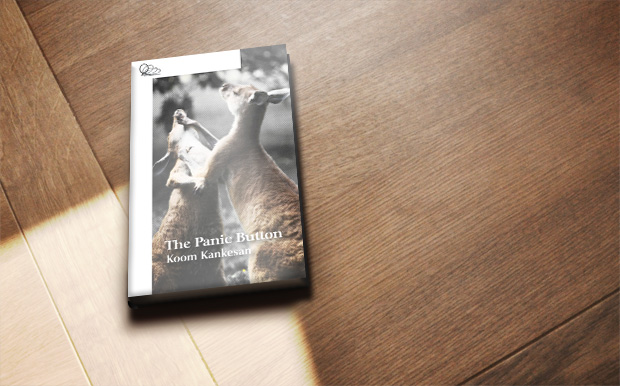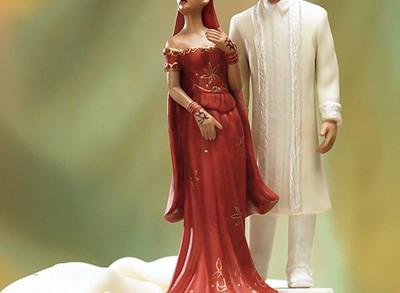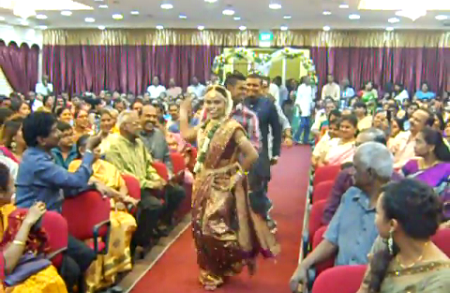I had never heard of “The Panic Button” or Koom Kankesan until SLWB’s benefit reading series, Samadhana. After going to the reading, and being intrigued by the discussion I decided to give this book a shot. The book opened with the subtle line “Who the fuck would want to marry me?” and right off the bat I was enticed to keep reading.
“In the book there’s a claustrophobic sense of things from being under pressure—the intensity just builds. That’s a bit like being Tamil I think; you have these wonderfully close, warm, intense family members but in certain ways your energy has no outlet, there is no avenue of expression…We’re so used to it, growing up in that kind of environment, that you don’t really stand out from it and say ‘is this something that’s fair, or normal or agreeable?’ You just kind of bear under it.”
Koom’s style of writing was unique and edgy enough to keep me engrossed from beginning to end of the book’s 155 pages. The story centers around the life of “Thambi” who wishes to avoid what many young Tamils think of as the dreaded last resort, arranged marriage. Don’t get me wrong, I know quite a few people that have had successful arranged marriages – but I shared Thambi’s uncertainty about them being the only way along with another of TC’s writers, Tasha, who shared her thoughts on arranged marriage recently.
Some interesting subplots in the novel include Thambi’s pursuit of a Caucasian woman and his reunion with his estranged father who he hasn’t seen for over 25 years. Through these elements “The Panic Button” takes readers inside of an interracial/intercultural relationship and all the complications that come with it.
The relationship between Thambi and Emily is definitely an interesting one and Koom provided me with some of his own insights about it:
“While she seems to get fulfillment from drawing close enough to him for physical contact, he needs more. And for me it really raises an interesting question about relationships—what are they? And what’s the difference between love and marriage? The idea of romantic love is a very recent one in much of Western society, and pretty much all of Eastern society.
For a long time marriage has not been there for romantic purposes but to establish societies, consolidate money and resources between families, to create alliances and things like that. To me, Emily is most interesting when she says I don’t know about relationships or marriage because there’s something about it that just doesn’t feel right.
She really questions the validity of marriage and to me she’s most authentic then, because there’s nothing Thambi can say to that. He doesn’t have any answers to that and I don’t really either when it comes down it.”
Much of the book resonated with me. It might have been the fact that “The Panic Button” was set in parts of Scarborough and downtown Toronto which I know very well. But there was also the familiarity in the way Koom describes the dynamics of the family—I could almost visualize the awkward moments between Thambi and his mom, and later his dad. Koom really gets to the heart of the cultural rift that forms in the average Tamil family, growing up away from their cultural roots.
“In a Tamil family, the love you feel for one another is constantly layered with the frustration of seeing tradition taking over what seems reasonable, or feasible or possible. And I think my character kind of deals with that.”
While Thambi’s life was the focal point, the story lines of other characters, such as Thambi’s older brother, were also woven into the narrative. This created plenty of opportunities to create depth in the story and get a really interesting perspective on how different family members can impact one another. Though Thambi’s brother wasn’t a character that elicited much sympathy, his position as an older sibling who faced the brunt of his parents’ pressures is one that many of us can relate to.
Whether you think getting an arranged marriage is hitting the panic button or not, Koom Kankesan’s debut novel will take you on an entertaining trip down memory lane and might even make you question your own views on marriage.
“Marriage is something that in our culture is seen as a looming thing. The reality is that it’s on most people’s minds, and if it doesn’t surface by a certain point in their life they get panicked and may see arranged marriage as the only way to sort of move forward. And it’s an amazing, incredible leap to do that in a society where not everyone does that. Where that’s not just a given, growing up, where now it almost seems like a choice you have to make. And to make a choice is to pay a price. You get into some very interesting territory there. In Tamil culture dating is a relatively new thing so that kind of gap between being single and being married is quite a precipice, and it’s quite a scary one. There’s not really much in between.”
Want to share your thoughts on Koom’s book? Tweet me @araentrepreneur
For more information on “The Panic Button”, check out the official facebook page.
—Ara Ehamparam

 Ara
Ara









